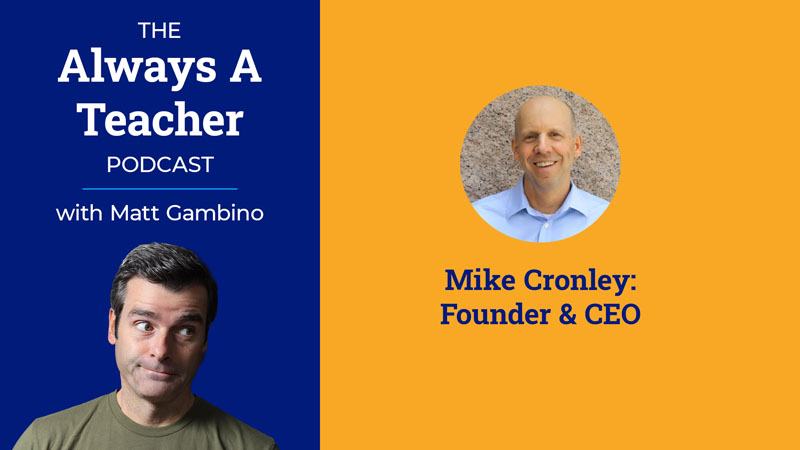
Show Notes
What happens when a simple lunchroom conversation turns into a "eureka" moment? For Mike Cronley, a 12-year elementary school teacher, it sparked the idea for his company, ClassComposer. Mike wasn't looking to leave the classroom; he was just trying to solve a problem that every teacher knows well: the chaotic, paper-based, and inefficient process of creating next year's class lists.
In this episode, Mike shares his incredible journey from identifying a problem to becoming a founder. He discusses how he validated his idea, the challenges of finding a technical team (including a "Pitch to Developers" night!), and why "customer discovery" is the single most important step any aspiring entrepreneur must take.
- The "Eureka" Moment: How a casual chat with a music teacher about two students who shouldn't have been placed together sparked the entire idea for ClassComposer.
- The Problem with Paper: Why the traditional paper-card method of class placement is broken, time-consuming, and fails to account for crucial student data as classrooms become more complex.
- Building a Team: Mike's honest take on the difficulty of finding a technical co-founder and how he used a "Pitch to Developers" event to find his initial team.
- Testing the Idea: The value of going to a trade show with only a simple video demo to get real, unbiased feedback from teachers in a different state.
- Advice for Founders: Mike’s number-one tip for teachers with an idea: Don't just build it. First, do the hard work of customer discovery to find out if people actually see the value and are willing to pay for it.
Episode Article
Every elementary school teacher knows that feeling in the spring. The stacks of blue and pink paper cards are delivered to your box. The lists of student data for academics, behavior, special needs, and separation requests pile up. Then come the hours spent on the library floor, shuffling those cards, trying to build balanced classes for the next grade level. Mike Cronley, a 12-year third-grade teacher, knew this process was broken, inefficient, and stressful. But he wasn't planning on leaving his career to fix it.
The change came from a simple, unplanned "eureka" moment during lunch in the teacher's lounge. Mike was chatting with the school's music teacher, who pointed out that two boys had ended up in the same class again, despite everyone knowing they needed to be separated. It was a clear failure of the paper process; that crucial data point had simply gotten lost in the shuffle. In that moment, they both asked, "Why isn't there software for this?" That simple question lit a fire in Mike and became an obsession.
Mike's journey wasn't immediate. He was happy as a teacher and wasn't looking for a career change. He first tried to "hack" the system at his own school, experimenting with different paper methods, but it was never enough. He realized the problem required a real, custom-built solution. He started talking to his co-teachers and former professors about his idea, and their enthusiastic feedback gave him the confidence to keep going. He didn't know the business term for it then, but he was conducting vital "customer discovery," confirming that the pain he felt was shared by educators everywhere.
Leaving the classroom (he took a one-year leave of absence to be safe) was a scary leap, especially since he knew nothing about business or startups. The hardest part, he says, was finding a technical team to actually build his vision. After several false starts, he found a "Pitch to Developers" meetup in his local startup community. He got on stage, not with a business plan, but with the story of the problem, complete with pictures of the paper cards. He successfully pitched his vision to the technical experts who would help him build the first version of ClassComposer.
Mike's story is a powerful lesson for any educator who has an idea for a better way. His number-one piece of advice is to resist the urge to just start building. Instead, he urges teachers to focus relentlessly on customer discovery. Talk to your potential users. Go to a conference (like Mike did) with just a simple demo. Ask them: "Do you get excited about this? Do you see the value? Would you pay for this?" That validation, he explains, is the most critical step to turning a teacher's insight into a successful edtech company.
